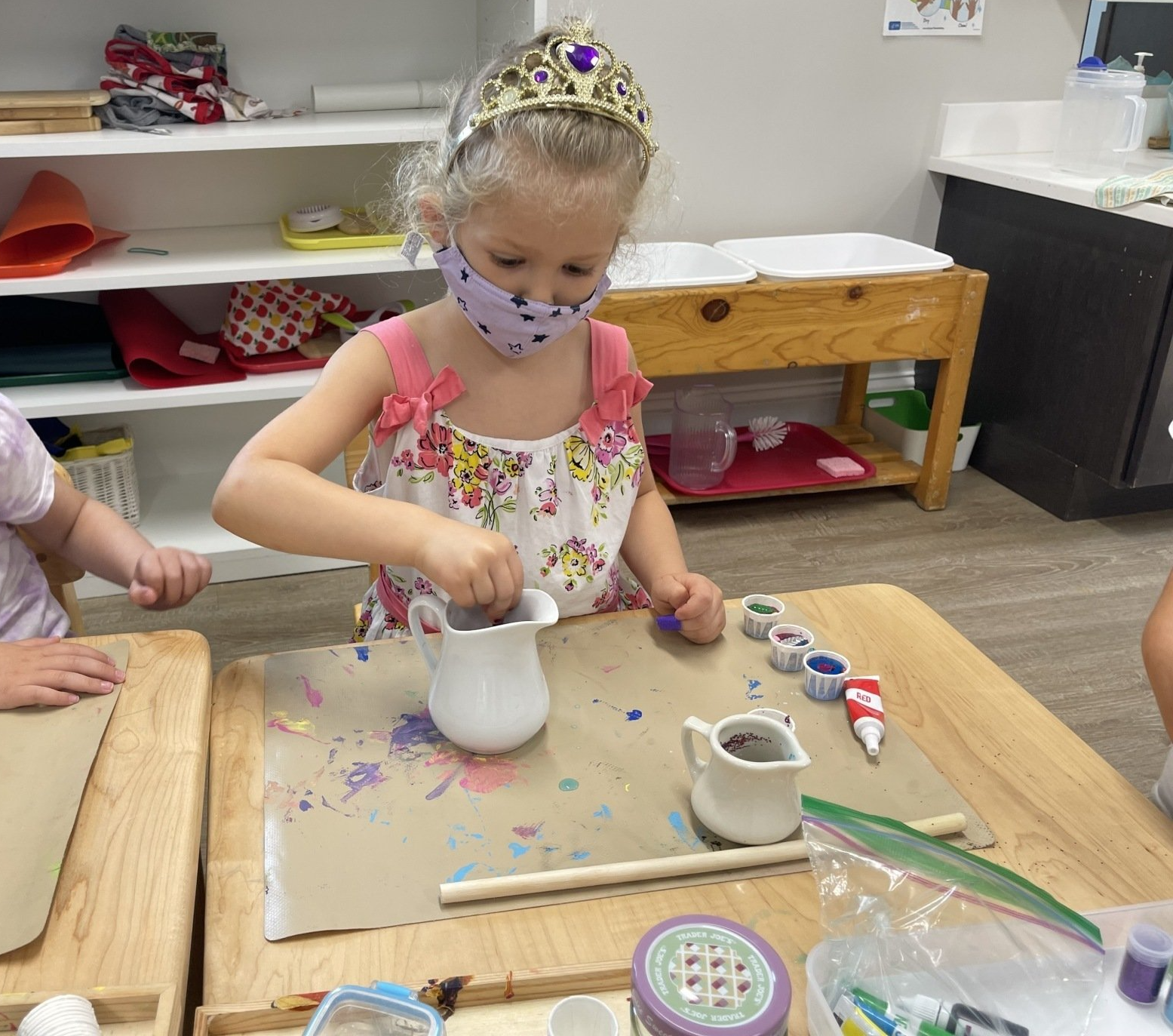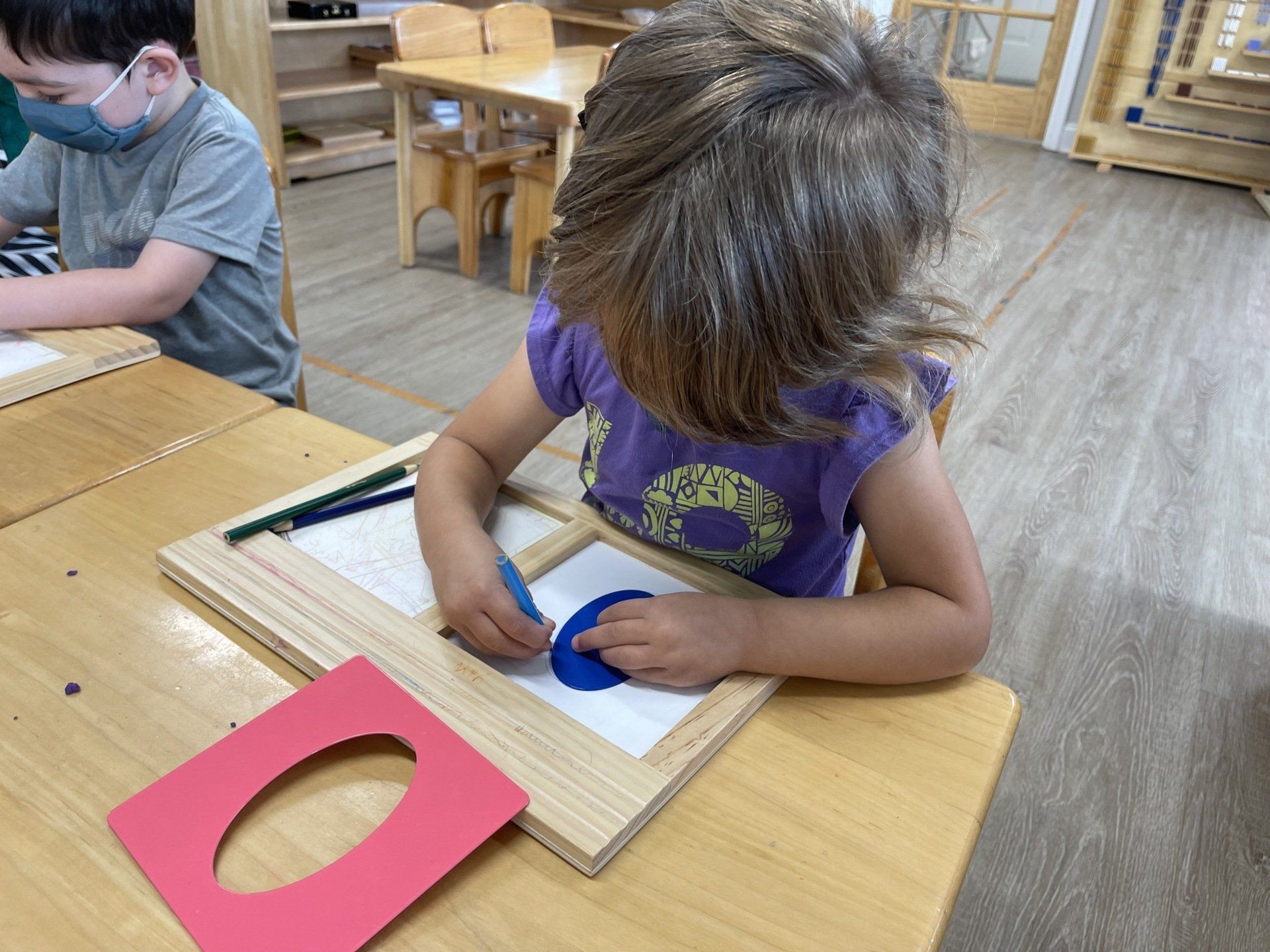Primary
A Love for Learning
3 - 6 years
This multi-age class forms a community of children. The classroom is divided into sections in which the child is able to explore various subjects: a 3-year-old can explore a practical life exercise, then learn math numbers and quantities, a 4-year-old can discover the wonders of language skills, and a 5-year-old can write a poem or teach a younger child to trace numbers.
Key Facts:
- Ages 3 to 6 years
- Full and half day options
- 5 days a week
- Potty-training available with staff
- September 1st registration cutoff
A Typical Day
- 8:15 a.m. – Arrival.
- 8:15 a.m. – The day starts with a welcoming circle, songs, parsha, and tefilah (prayers).
- 8:30 a.m. – The children move into a morning routine of Montessori play and learn, or what we call “work”. Snacks are served throughout the morning and include healthy choices of fruit, vegetables, and protein. The children sing and learn Hebrew throughout the day.
- 11:30 a.m. – They will visit the playground and play outside for half an hour.
- 12:00 p.m. Lunch.
- 12:15 p.m. – Noon Dismissal. Most will continue in lunch in classroom.
- 12:30 p.m. – Free play time.
- 1:00 p.m. – Older children who can stay longer will resume the Montessori classroom work. Younger children will continue free play at our playroom or outside.
- 3:00 p.m Dismissal.
Sensorial Materials
The child’s mind receives impressions of his environment through the senses. Small – Smaller,- Smallest is one exercise where a child can understand sizes and dimension. The sensorial material assists this natural process by helping the child order and classify these impressions. Sensorial materials isolate one particular quality such as color, sound, texture, size, shape, temperature, and weight. Sensorial materials include color tablets, cylinder blocks, geometric shapes, and solids.
Practical Life
These are activities the child sees in their everyday environment. Practical life materials teach the child how to tie, button, snap, zip and use other fastening devices.
The child cares for the classroom environment by washing tables and chairs, mopping, dusting and polishing, while developing small and large muscle coordination. Development of the social graces is another important aspect. The child is shown how to be polite, courteous and thoughtful of others.
Practical life activities develop and expand the child’s concentration time and provide the foundation of a Montessori education.
Hebrew-English
The child’s vocabulary is enriched in the Montessori classroom through the use of objects in the environment, pictures, illustrations, stories, poems, conversation, and sensorial materials.
The Montessori child learns to read by the phonics method: introducing the child to phonics with sandpaper letters allows him/her to hear the sound, see and feel the shape of the letter and train his muscles for writing. Language cards are used to develop vocabulary, spelling and to expand the child’s knowledge of varied subjects from dinosaurs to art. Our program also includes the Hebrew language: vocabulary and verbal practice, letter recognition, and movable alphabet. Reading and writing are introduced at the advanced level.
Mathematics
Math materials give the child a concrete experience before dealing with the abstract. The child is first introduced to the quantity and then the symbol for the numbers 1 through 10, followed by work with the teens and tens. Using beads and number cards, the child learns the basis of the decimal system and is taught the processes of addition, subtraction, multiplication, and division.
Only after the child develops a complete understanding of these functions in the concrete, does he begin a gradual process of working with the many math materials that will lead to the more abstract numbers.
“Morah Carmen! All the teachers are great but it is always Carmen whom Margaret talks about at home (whether it be helping her at naptime to soothing her if she gets hurt). Thank you for taking care of my sweet girl!”
- Parent
Geography
Hands-on materials give the child a firm understanding of the physical world. The young child learns the differences between the many land and water forms. Puzzle maps of each continent allow the child to learn the names of all the countries and later their capitals.
Cultural lessons designed around the maps are used to teach history. Stories capture the child’s imagination and help him learn about the world.
Years later, Montessori students report how easy it is for them to remember the names of countries and cities around the world because of their early experiences with Montessori geography materials.
Art, Nature, Music & Science
The young child is presented with many art projects and simple science experiments. Singing, rhythm games, and folk dances are important activities in the Montessori program. The children also learns about famous composers and artists through stories and by listening to their music. The class plants and grows seeds for Tu B’Svat, and learns forms of trees and plants as part of their discoveries.
Judaics
We celebrate our Jewish life with a Shabbat party each week, including the story of the parsha. We also celebrate the Jewish holidays throughout the year. Our Judaic curriculum has been reviewed and designed for children to learn independently.
We use many hands-on materials to learn important lessons, stories, and skills. We teach our students through circle time and by presenting lessons to the class. The materials are then available for the children to explore.
All students learn about the upcoming chagim as well as the customs and mitzvot that come along with them.
More Enrichment Activities
Our enrichment program includes arts and crafts projects on relevant subjects of the school curriculum:
- Little Hands Baking
- Yoga class
- Music classes
- Art classes
- Field trips
If you think your child would thrive in a Montessori environment, give us a call or schedule a virtual tour online. We would love for you to visit our school and learn more.
OPENING HOURS
Elementary 8:15 - 3:00
Primary 8:15 - 3:00
Toddlers 8:30 - 2:45
After care - 4:00 (M, W, Th only)
PROGRAMS
Alef Bet Montessori School
Alef Bet Montessori School


